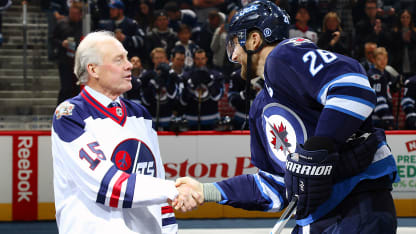"When their three right-side defensemen all left the team (Jacob Trouba, Tyler Myers, Dustin Byfuglien), all of them quality defensemen with different dimensions, I thought this was not the year the Winnipeg Jets would advance very far. But anytime you have a player of the quality of Mark Scheifele, that gives you a chance, and they have some very talented other players. But to win the Stanley Cup I think there's going to have to be somebody (else acquired) on the back end or a surprise within the system. Their last signing, the big defenseman Dylan Samberg, maybe there's not a lot of (offensive) production in him but I like his background, that he's from just south of the (Canada-United States) border, which means he doesn't mind snow and winter, which I think is an advantage. The Byfuglien situation, that needed to be resolved for many different reasons. And Ville Heinola (No. 20 pick, 2019 NHL Draft), the young Finnish defenseman, he went back to Finland and didn't have an unbelievable season, just an OK season, which indicated to me that they might have kept him too long in Winnipeg. Maybe it will be his time now but you have to be patient. My old mentor and friend, (sports agent) Don Baizley, always said it's better to arrive a little bit too late than too early."

